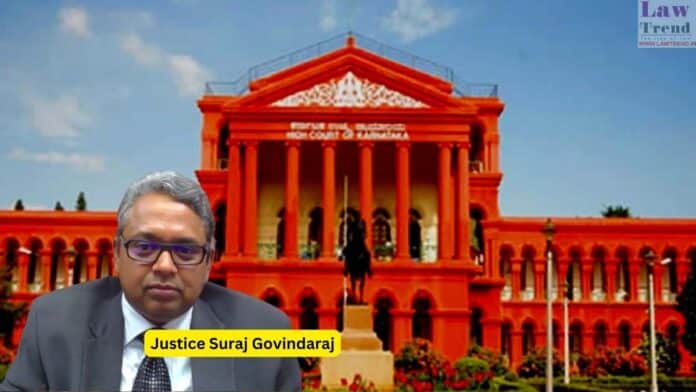The High Court of Karnataka has directed quasi-judicial authorities in the Department of Panchayat Raj, Rural Development Department, to ensure that all case proceedings before them are web-hosted and information is provided to the litigants and advocates electronically.
The HC also directed that details of all the proceedings before quasi-judicial authorities must be uploaded to the relevant websites and necessary arrangements made to inform the litigants and also advocates by SMS and/ or e-mail.
The quasi-judicial authorities are also required to detail reasons on why any matter was being adjourned “rather than a laconic statement that the Presiding Officer is otherwise busy in administrative function.”
The Court’s direction came in a petition that challenged orders passed by the Zilla Panchayat in 2014 and the President of the Taluk Panchayat in 2002. The ‘khata’ (a legal document issued to property owners) issued by the Gram panchayat to the father of one Manje Gowda from Nagamangala, Mandya was cancelled by the two quasi-judicial authorities after the death of Manje Gowda’s father.
Manje Gowda had challenged this before the HC and also pointed out that from 2002 to 2013, the issue was kept on being adjourned because the President of the Zilla Panchayat was busy with administrative work on every date the matter was posted for hearing.
After 111 adjournments, when Manje Gowda was absent one day, the matter was decided. It was only two years later he came to know of the order being passed and managed to obtain a copy.
The HC set aside the orders of the Taluk and Zilla Panchayats stating that they did not have powers to cancel the khatas and they only had powers to keep it under suspension pending any enquiry. But it was the delay in the process that the HC took a very serious note of.
Justice Suraj Govindaraj, who heard the petition by Manje Gowda, said, “This Court is coming across several revenue proceedings in various jurisdictions where quasi-judicial authorities are not holding sittings in a proper and required manner nor are the information being made available to the litigants and the lawyers. This is one more case in reference inasmuch as the impugned order dated 16.01.2014 was not to the knowledge of the petitioner until he made enquiries thereto and obtained certified copies in the year 2016.”
“A perusal of the order sheet at Annexure-N gives a very sad situation,” the HC said listing out the 111 adjournment dates from May 2002 to October 2013.
“Finally on 13.12.2013 noticing that the counsel was not present, the matter was posted for orders and thereafter order seems to have been passed on 16.01.2014,” the HC said.
Noticing the lacunae in the functioning, the HC said, “A perusal of the above would not indicate any information having been conveyed to the petitioner or his advocate about the adjournment. On most occasions, it is the Presiding Officer who is otherwise busy and did not discharge his quasi-judicial function. When the petitioner was absent, matter was posted for orders. It is required that the administrative authorities give equal, if not more prominence, to quasi judicial functions where the rights of the citizens are affected.”
Like in this case when the order has been passed without jurisdiction, but also without information to citizens in the matter, it said.
The HC directed the authorities to come up with a “comprehensive report, detailed project plan, as well as detailed action taken report” that has to be submitted within eight weeks.




